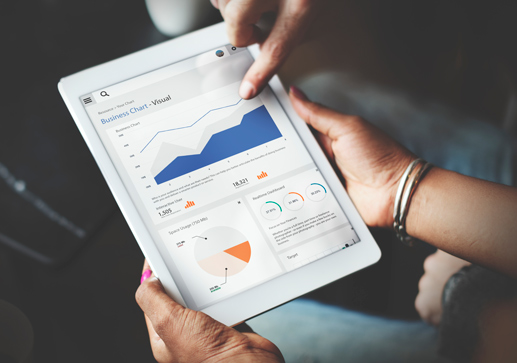The Important Question isn’t "How Big is your Business"?
/Do you hear marketers out there promoting 10K months or million dollar turnovers like that’s how all businesses should be and feeling like you're missing something? Or maybe you do have 10K months but still feel like your business is taking all the money for its expenses and you’re ending up with mere leftovers?
The truth is, it’s not the sales or turnover that matters in the long run.
It’s the efficiency of our businesses, its ability to make a profit and to give us a wage, otherwise you’re just running a charity.
Why did you go into business for yourself in the first place? Was it to have your own freedom to make money your way? To live a flexible lifestyle? Or was it to work long hours, just so you can scrape buy on minimum wage? No way!
This is the hard reality of so many business owners hoping to be successful in their own way. Do you go to your bank account, see how much money is there and determine major business decisions off that single number?
Most entrepreneurs don’t have the time or gumption to read the different accounting statements necessary to manage the financial aspect of their business. That’s what accountants are for right? So often, especially in the beginning, we only visit that accountant once or twice a year.
Theoretically you should review and correlate your Income Statement, Balance Sheet and Cash Flow Statement monthly (or more frequently), but few entrepreneurs do. Most resort to 'bank balance accounting' where we check our bank balance every day and make financial decisions based upon what we see. Per Parkinson’s Law, we consume what we see in our bank account.
Here the ‘Generally Accepted Accounting Practice’ that ‘Sales - Expenses = Profit’ needs to be turned on its head.
Flip the formula to 'Sales – Profit = Expenses'.
Logically the maths is the same, but from the stand point of the entrepreneur’s behaviour it is radically different. You take a predetermined percentage of profit from every sale first, and only the remainder is available for expenses.
By first allocating money to profit (then other accounts such as tax and wages) the entrepreneur sees the actual portion of deposits that are available for expenses and they can automatically adjust their spending accordingly.
Improve your cashflow, improve your profit.
This article was contributed by Laurie Griggs - a Money Mentor who shares her knowledge from 15 years in finance and experience of living on an unpredictable income from her own family business for over nine years.
Laurie helps entrepreneurs escape the worry of unpredictable cashflow and achieve the life goals they have always wanted but have been held back by debt or never getting ahead.

